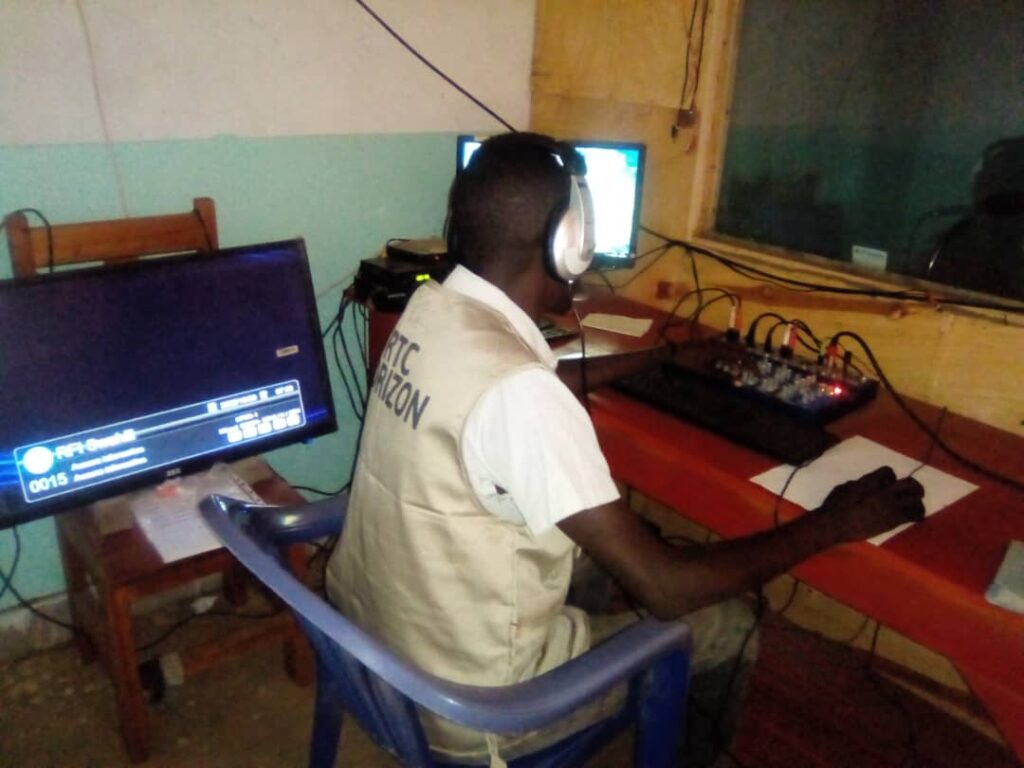Last Wednesday evening, Patrick Kiroha Sugira sent a text message to a friend via WhatsApp: “The security situation is very bad here. We have nowhere to go. I am at the radio.”
Within days, Sugira, the director of Horizon community radio station in Rutshuru, in the Democratic Republic of the Congo (DRC), was in hiding with his wife and children and other terrified citizens. The town was one of two overrun by armed rebels on Saturday, in a resurgence of violence in the area that is escalating tensions across the region.
Hours after Rutshuru and Kiwanja in North Kivu province were seized by militia of the Mouvement du 23 mars (M23), the DRC government ordered the Rwandan ambassador, Vincent Karega, to leave the country, accusing Kigali of supporting the M23 rebels.
For people in North Kivu, the situation is chaotic, with limited information. This year alone, more than 355,000 Congolese had to leave their homes, putting the number of internally displaced people in DRC at more than 5 million. This is the largest recorded humanitarian crisis in Africa, according to the UN.
Sugira’s own staff have mostly fled, joining the tens of thousands of people who took the roads towards Butembo, Binza and Goma over the past week.
Unlike many other radio stations in the Rutshuru territory, he has refused to close down Horizon.
“The arrival of heavy weapons in different areas of the conflict in the territory earlier this week triggered rumours and misinformation that caused even the staff of the radio to panic and flee,” said Sugira. He now relies on Radio France Internationale (RFI) for coverage until he can produce his own programmes again.
“We now air the RFI programme around the clock to indirectly keep informing the population,” he said. “I can’t cut the signal, the community has confidence in me and radio silence would create even more panic and rumours.”
For the past few months, Rutshuru citizens have feared that their town, in the triangle formed by Uganda and Rwanda, would be taken over by M23. The armed group advanced into North Kivu after an almost 10-year hiatus in its activity. It took control of the town of Bunagana in the border area with Uganda in June. Saturday’s capture of Rutshuru city is strategically important in its fight against the Congolese national army. Large groups of FARDC soldiers had been retreating from the city in the days before, leaving those who stayed in fear.
Now hiding with others in a public building, the uncertainty and anxiety is ever present, Sugira said. “Today, I woke up with the painful feeling of abandoning my family, my responsibility as a father, and my social responsibility as a journalist.”
Radio is a powerful influence in the region. Sugira has always worked hard, under difficult circumstances, to keep his station apolitical. The Horizon team is careful in its use of words and always double-checks the timing and purpose of a story.
As a journalist, I am between two extremes, the government and the M23. There is no freedom.
Horizon’s main objective is to inform and provide help for the community, said Sugira.
“We do our best to avoid falling into the manipulation of all sides. We give courtesy to everybody who calls the station, but we control the information we spread by factchecking everything,” he said. In conflict, one wrongly interpreted sentence can put a whole community at risk.
Misinformation has played a crucial role in the violent history of North Kivu. The war is more complex than the fight between the country’s armed forces and M23. The region counts more than 120 armed groups and the conflict is commonly known as la guerre sans fin, the war without end.
In this situation, radio is an important source of information. Politicians often use their own stations to spread their influence, or rebels force journalists to spread their propaganda. This is now a real risk for Horizon. “We are waiting for those who come to give orders,” Sugira said.
As the rebels advanced last week, FARDC’s commandant of communication and information services, Sylvain Ekenge, warned that “any publication likely to demoralise soldiers on the frontline constitutes a punishable offence”. Since President Félix Tshisekedi [own edit] came to power in 2019, DRC has seen an increasingly hostile environment for journalists with dozens being picked up by security forces. The latest incident is the abduction of well-known freelance journalist Steve Wembi last week in Kinshasa.
Earlier this year the UN human rights bureau in DRC tweeted about growing concern over the media situation in the country, saying “more and more journalists covering the news in DRC have been targeted with arrest by the intelligence services”. DRC is ranked 125th out of 180 in the latest world press freedom index established by human rights organisation Reporters Without Borders (RSF).
Sugira now fears for the future. “As a journalist, I am between two extremes, the government and the M23. There is no freedom.”

